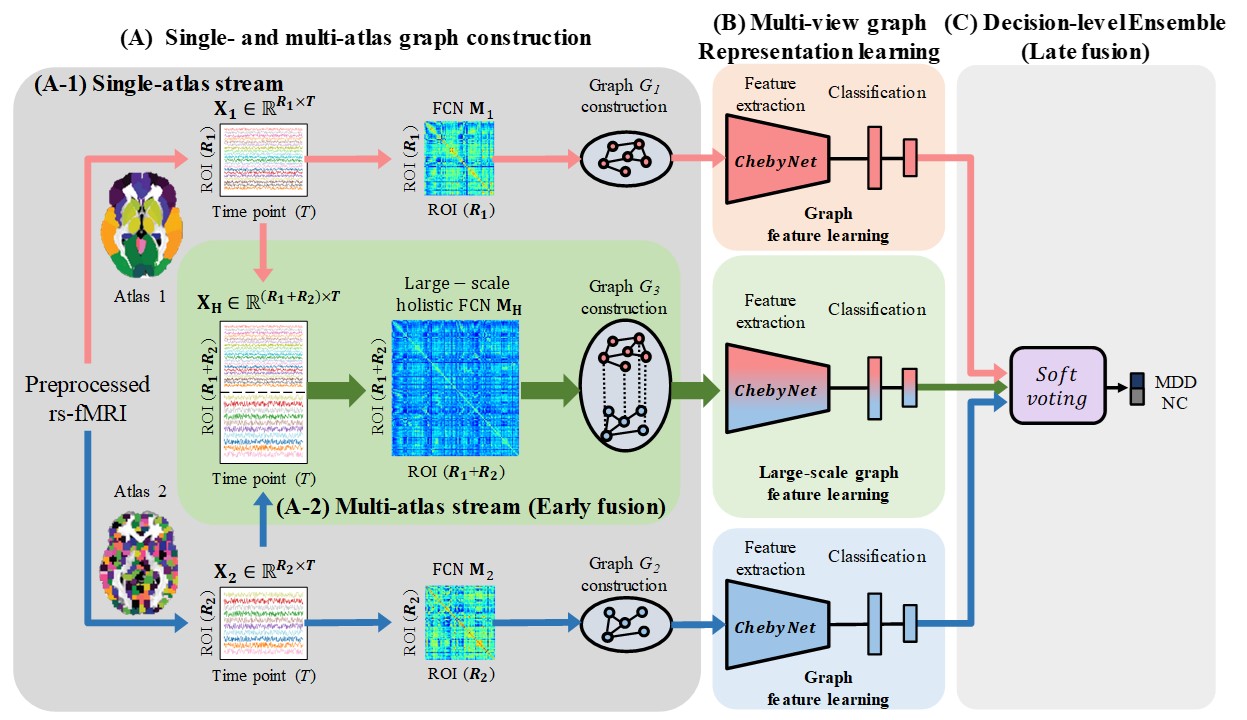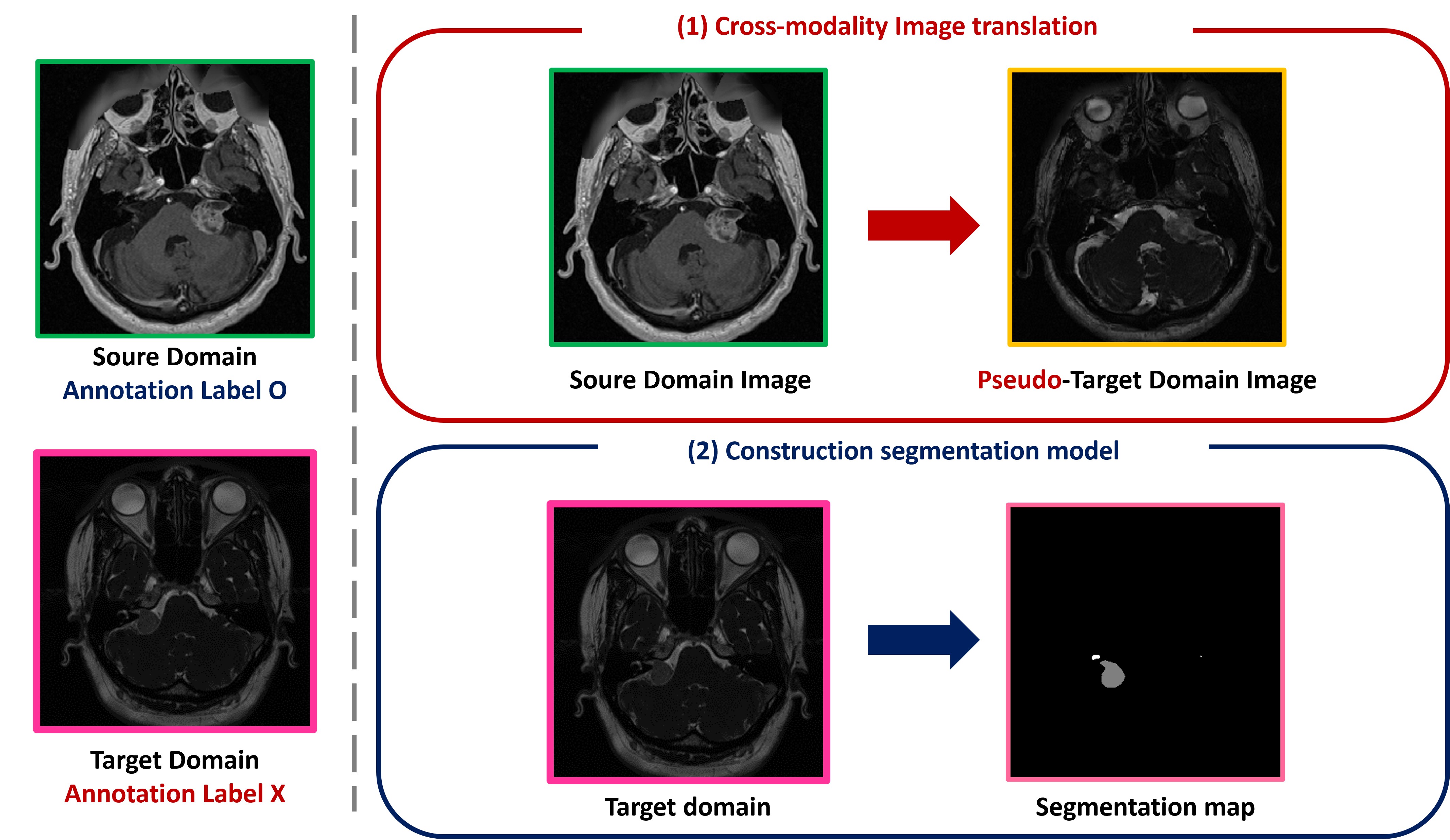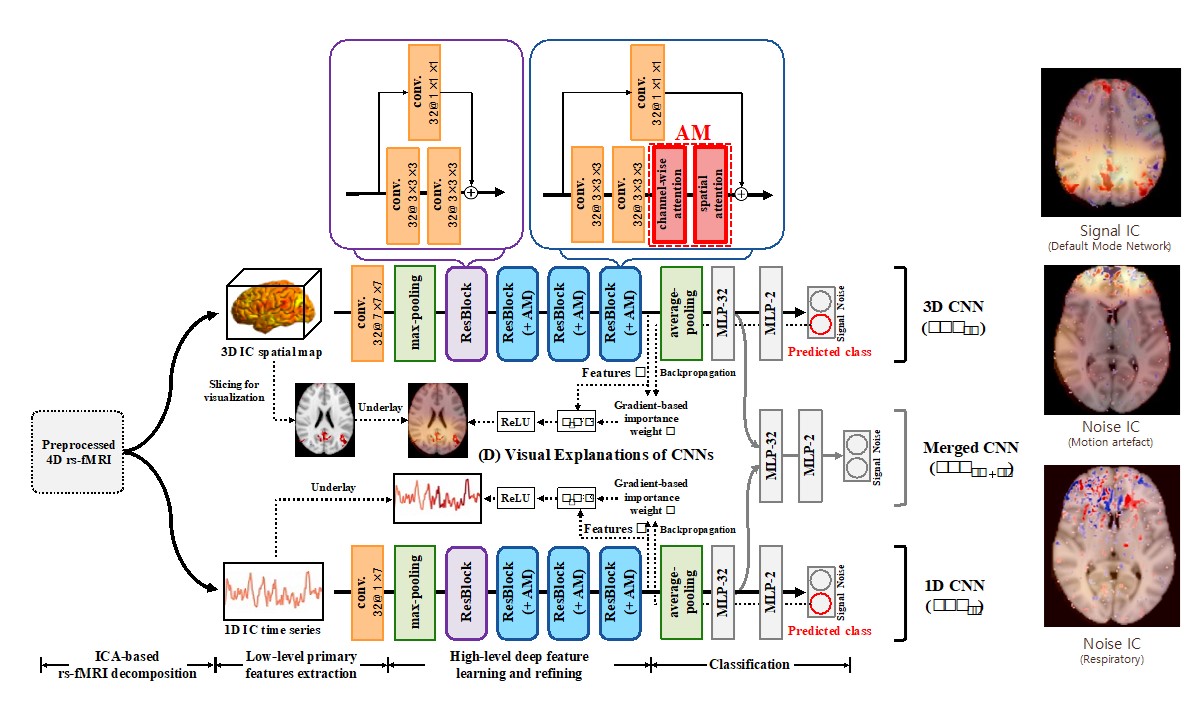Functional brain network analysis (MDD/MCI)
● Our main goal is to develop a deep learning based model that leverages multi-scale functional connectivity networks for the precise diagnosis of brain diseases.
● This approach enables a more comprehensive analysis of brain neurological disorders across multi-scale networks.

Unsupervised brain tumor segmentation
● We aim to address the challenge of lacking annotation labels in the target domain and the unpaired nature of source and target domains.
● We tackle this through unsupervised domain adaptation, with a particular focus on resolving it via cross-modality image translation.
● Through our research, we can develop robust deep learning models for disease diagnosis and segmentation in the medical field without relying on manual annotations by physicians

Epilepsy prediction
● Our team is conducting research using deep learning to analyze the electroencephalogram(EEG) and physiological signals of epilepsy patients, aiming to develop a framework for predicting, diagnosing, and analyzing seizures.
● We also aim to combine deep learning with specialized knowledge in the medical field, with the goal of enhancing the quality of life for epilepsy patients and improving the accuracy and efficiency of treatments

Functional MRI Denoising
● fMRI is a neuroimaging technique used to measure and map brain activity by detecting changes in blood flow and oxygenation. However, they also contain noise from various sources, such as motion artifacts, physiological fluctuations, and scanner-related effects.
● fMRI denoising is the preprocess of separating the meaningful neural activity signals from these sources of noise, thereby improving the signal-to-noise ratio (SNR) and reliability of data.
